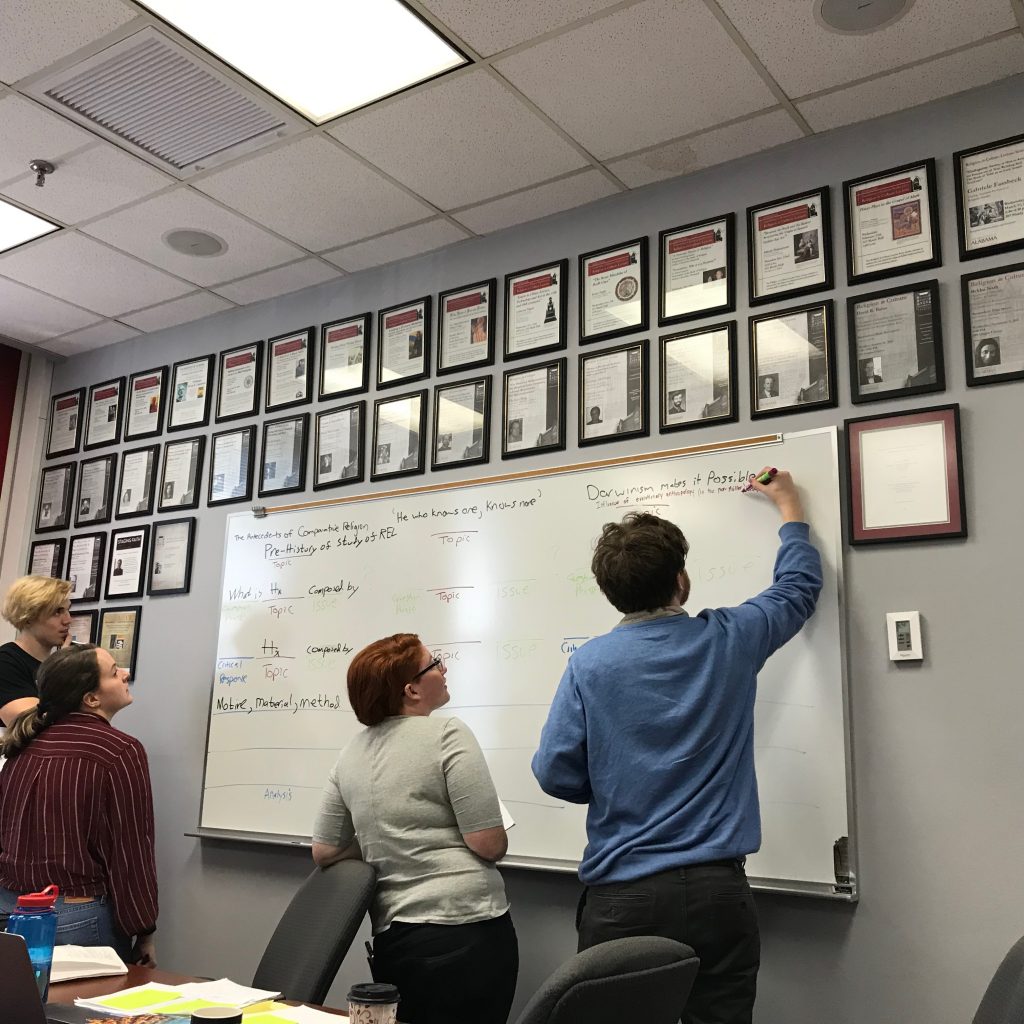
Prof. Richard Newton reports on a discussion topic from his graduate seminar on the history of religious studies. His students have been talking about the backstory of debates on definition as it pertains to religious studies. This week, students read a little bit from the nineteenth century Dutch scholars, Cornelis P. Tiele.
In my History of the Study of Religion seminar, our Religion in Culture graduate students have been discussing the very enterprise in which we are engaged. The course is built around the following question:
What does it mean to discuss the academic study of religion as a history, a field, and a discipline?
There are many places to start with such an endeavor. And if interest warrants, I’ll share how we’ve done this in a future post. For now I’ll go in media res and just share an interesting passage that we came across in our study.
This is from the first of Cornelis P. Tiele’s 1896-1897 contributions to the Gifford Lectures series titled Elements of the Science of Religion.
Yet I believe that the science of religion requires a broader foundation than history in the ordinary sense of the word. Historical research must precede and pave the way for our science; but it does not belong to it. If I have minutely described all the religions in existence, their doctrines, myths, customs, the observances they inculcate, and the organisation of their adherents, besides tracing the different religious forms, their origin, bloom, and decay, I have merely collected the materials with which the science of religion works. And, indispensable as this is, it is not enough. Anthropology or the science of our social relations, psychology or the science of man’s inmost being, and perhaps other sciences besides, must yield their contributions in order to help us learn the true nature and origin of religion, and thus to reach our goal.
One of the major thrusts of the course is preparing students to explain what makes what they’re doing “religious studies.” Tiele’s words here are a good reminder that this task is by no means a new one. He too had to nuance the relationship of the science of religion from history, speculative philosophy, the natural sciences, and the emerging disciplines we think of now as the social sciences.
I wonder to what extent religious studies scholars would agree with Tiele’s summation here. Where would they push back; where would they cheer…and most importantly, why?
I also have been thinking about the stakes. When does it matter to have a disciplinary identity? Who makes that happen and how?
If you have answers or questions, l’d love to bring those into our seminar. After all, scholarship is always a work in progress.